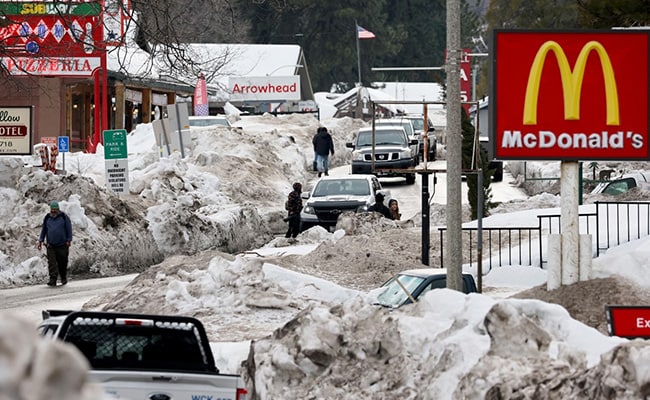Atmospheric river storms are raising concerns due to their combined strength
California is currently facing a series of powerful storms, driven by atmospheric rivers (ARs), raising concerns about flash flooding, landslides, and strong winds.
Here is a breakdown of the key facts surrounding these weather events.
What is an Atmospheric River?
Atmospheric rivers, often referred to as "rivers in the sky," are long streams of moisture in the atmosphere, spanning 250-375 miles wide. Fueled by water vapor from the Pacific Ocean, they play a crucial role in California's precipitation. While they contribute significantly to water supply, they can also lead to destructive floods and intense storms due to their sheer volume of moisture, according to NOAA.
'Pineapple Express' Storms
The current storms hitting California belong to the category known as "Pineapple Express", originating around the Hawaiian Islands. These systems can bring heavy precipitation, dumping as much as 5 inches of rain in a single day, posing a heightened risk of flash floods and other weather-related dangers.
“This system has the potential to bring a six- to 12-hour period of heavy to locally very heavy rainfall in NorCal on Wednesday,” noted climate scientist Daniel Swain during a discussion of the impending storm on Tuesday, as per the Guardian. Swain cautioned that there is a high probability of widespread flooding on roadways and in small streams due to the anticipated heavy rainfall.
Why are people worried?
Back-to-back atmospheric river storms are raising concerns due to their combined strength and the already saturated conditions of the soil. Last year, a similar pattern resulted in historic rainfall, causing flooding, landslides, and casualties, reported the Guardian.
Although this winter has not seen as much rain, there have been serious floods in Ventura County and San Diego. Last year, Ventura faced a deluge with water rescues and submerged streets. In January, heavy rain in San Diego overwhelmed its old stormwater systems, causing flooding in homes and businesses.
Scientists warn these destructive events are just a glimpse of what's coming due to the climate crisis, doubling the risk of a catastrophic megaflood in California, displacing millions and causing over $1 trillion in losses. Scientist Daniel Swain warned that California still has a long way to go to prepare for such events, however, time is running short.
California's climate is witnessing more extreme shifts, with atmospheric rivers becoming more likely and potentially more severe due to rising ocean temperatures. The climate crisis is amplifying the risks, as models indicate increased intensity and frequency of these weather events, according to a study. Atmospheric rivers could pose challenges to California's water supply, with a shift from snow to rain as temperatures rise.






Leave a Reply